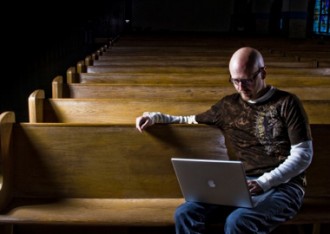
The Internet is Not Killing Organized Religion
The theory that access to the internet will be the undoing of organized religion has resurfaced. But do the data show anything like this?
Read More
The theory that access to the internet will be the undoing of organized religion has resurfaced. But do the data show anything like this?
Read More
Almost half of the world’s countries have laws or policies that penalize blasphemy, apostasy, contempt of religion, or religious “hate speech.”
Read More
At the end of the day, ministry without meaningful engagement is merely a form of advertising.
Read More
While the Catholic Church has certainly gone out of its way to encourage the use of social media to spread the gospel, it’s unlikely it intended the creepy surveillance that recently took place in a Minnesota parish.
Read More
So to see Manhattan itself go belly-up after the storm, to watch how carnal we become when met with loss of power, has been a sobering and a saddening experience. All of this has made me think more squarely about how inured we have become to screens as the mediator of our imaginative lives. Without electricity, we have no escape. Without Playstations and Xboxes, we have no other-worlds. Without fully charged mobile devices, we have no social media. Without our screens, we have lost our spaces of order, our promised places of reliable rules, our escape from reality. Whereas some New Yorkers contented themselves with flashlights and novels during Sandy’s aftermath, others felt compelled to trudge up to the gaudy power-lit mega-screens of Times Square, where at least you could see commercials and fight for seats at Starbucks.
Read More
Ask a feminist Mormon housewife.
Read More
A state that attempts to use the force of law to stop blasphemy must select certain identities for protection to the exclusion of others.
Read More
A consciousness change is happening in Syria, a country of twenty-three million that has been brutalized under Martial Law since 1963. My parents left in 1971 with their children, including me, because the repression of civil liberties had already become intolerable. The sense of helpless terror became so ingrained among Syrians that relatives who remained in Syria spoke only in hushed tones and coded words about the brutality of the state—even, incredibly, when they were visiting us in our suburban U.S. home, miles from the reach of any Syrian state police agent.
Read More
Over the past couple years, religionistas of all sorts have attempted to navigate a new media landscape in which old constructions of religious authority, identity, affiliation, and practice are changing almost by the minute.
Read MoreA roundup of the week’s religion headlines.
Read More